Related Research Articles
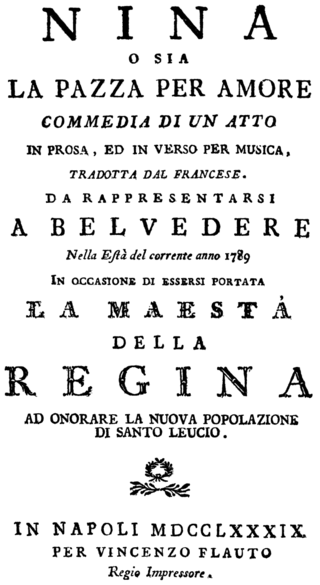
Nina, o sia La pazza per amore is an opera, described in 1790 as a commedia in prosa ed in verso per musica, in two acts by Giovanni Paisiello to an Italian libretto by Giovanni Battista Lorenzi after Giuseppe Carpani's translation of Benoît-Joseph Marsollier's Nina, ou La folle par amour, set by Nicolas Dalayrac in 1786. The work is a sentimental comedy with set numbers, recitative and spoken dialog. It is set in Italy in the 18th century. Nina was first performed in a one-act version at the Teatro del Reale Sito di Belvedere in Caserta, San Leucio on 25 June 1789. The revised and familiar two-act work was presented at the Teatro dei Fiorentini in Naples in the autumn of 1790.
La belle au bois dormant is an opera in three acts by Michele Carafa to a French libretto by Eugène de Planard after the tale by Charles Perrault.

Œdipe à Colone is an operatic tragédie lyrique by Antonio Sacchini first performed at Versailles on 4 January 1786 in the presence of King Louis XVI and Marie Antoinette. The libretto, by Nicolas-François Guillard, is based on the play Oedipus at Colonus by Sophocles. The premiere, intended to inaugurate the new theatre at Versailles, was not a success, possibly due to the quality of the performances, the staging, or the acoustics. Marie Antoinette promised Sacchini a better production at Fontainebleau in the autumn, but the Affair of the Diamond Necklace meant she was unable to have her wish. The news that the production was cancelled is said to have hastened the death of the already seriously ill composer on October 9, 1786. Œdipe was given a posthumous performance by the Paris Opera at the Théâtre de la Porte Saint-Martin on February 1, 1787. This time the audience was warmly appreciative and the opera became one of the most popular pieces in the repertoire for several decades, reaching a total of almost 600 performances by 1844.

König Hirsch is an opera in three acts by Hans Werner Henze to a German libretto by Heinz von Cramer after Il re cervo, a theatrical fable (1762) by Carlo Gozzi. He revised it as Il re cervo, premiered in 1963 at the Staatstheater Kassel.
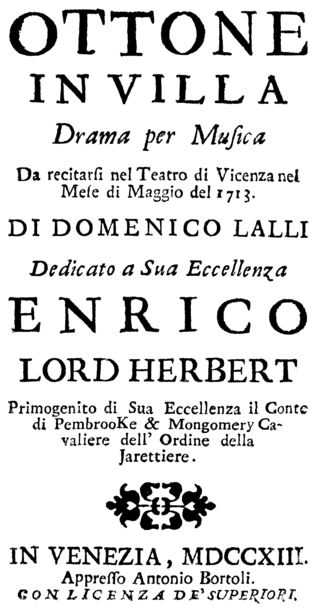
Ottone in villa is an opera in three acts by Antonio Vivaldi to an Italian libretto by Domenico Lalli. It was Vivaldi's first opera and premiered on 17 May 1713 at the Teatro delle Grazie in Vicenza. Lalli's pastoral drama is set in ancient Rome and was a condensed adaptation of Francesco Maria Piccioli's satirical libretto for Carlo Pallavicino's opera Messalina (1679). However, Lalli changed several of the characters in Piccioli's libretto. Messalina became an invented character, Cleonilla. The Roman Emperor Claudius became another emperor, Otho (Ottone), who had already appeared as a protagonist in Monteverdi's L'incoronazione di Poppea (1642) and in Handel's Agrippina (1709).

Bellérophon is an opera with music by Jean-Baptiste Lully and a libretto by Thomas Corneille and Bernard le Bovier de Fontenelle first performed by the Opéra at the Théâtre du Palais-Royal in Paris on 31 January 1679.
Les noces de Jeannette is an opéra comique in one act by Victor Massé to a libretto by Jules Barbier and Michel Carré. It had its premiere in Paris in the Salle Favart at the Opéra-Comique, 4 February 1853.
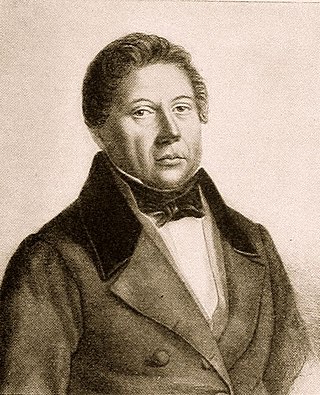
Le cantatrici villane is a comic opera in two acts composed by Valentino Fioravanti to a libretto by Giuseppe Palomba. It was first performed in Naples in 1799. A revised one act version premiered at the Teatro San Moisè in Venice as Le virtuose ridicole in 1801.
Don Giovanni, o sia Il convitato di pietra, also known as Don Giovanni Tenorio is a one-act opera by the Italian composer Giuseppe Gazzaniga. The opera was first performed at the Teatro San Moisè, Venice, on 5 February 1787, the same day as Francesco Gardi's opera Don Giovanni in the same city at the Teatro San Samuele The libretto, by Giovanni Bertati, is based on the legend of Don Juan as told by Tirso de Molina in his play The Trickster of Seville and the Stone Guest (c. 1630), leading to comparisons with Mozart's Don Giovanni which had its premiere later in 1787. Mozart's librettist, Lorenzo Da Ponte, certainly knew the earlier opera. Gazzaniga's work is much shorter than Mozart's, and originally formed part of a double-bill with another piece, Il capriccio drammatico.

La fée Urgèle, ou Ce qui plaît aux dames is an opéra comique in four acts by the composer Egidio Duni. The libretto, by Charles-Simon Favart, is based on Voltaire's Ce qui plaît aux dames and Chaucer's "The Wife of Bath's Tale".
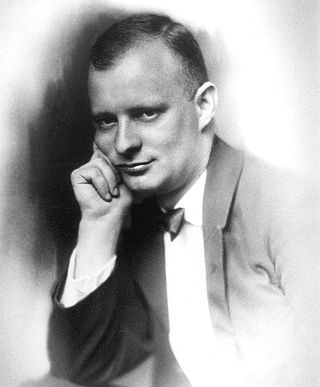
Neues vom Tage is a comic opera in three parts by Paul Hindemith, with a German libretto by Marcellus Schiffer.
I granatieri is an 'Neapolitan operetta' in three acts by the Italian composer Vincenzo Valente with a libretto in Italian by Raffaele Della Campa and Joseph Méry. It has been called the first true Italian operetta.

Nozze istriane is an opera in three acts by Antonio Smareglia to an Italian libretto by Luigi Illica. It premiered on 28 March 1895 at the Teatro Comunale in Trieste.

Ulisse is an opera in a prologue and two acts composed by Luigi Dallapiccola to his own libretto based on the legend of Ulysses. It premiered at the Deutsche Oper Berlin on 29 September 1968 conducted by Lorin Maazel with Erik Saedén in the title role. Ulisse was Dallapiccola's last opera and took eight years to compose. As in his previous operas, Volo di notte and Il prigioniero, his declared theme was "the struggle of man against some force much stronger than he".
The Portrait is an opera in eight scenes composed by Mieczysław Weinberg to a libretto by Alexander Medvedev based on Nikolai Gogol's short story The Portrait.
L'incoronazione di Dario is an opera in three acts composed by Giacomo Antonio Perti to an Italian libretto by Adriano Morselli. It was first performed on 13 January 1686, at the Teatro Malvezzi in Bologna. Morselli originally wrote the libretto for Domenico Freschi's opera Dario which premiered at the Teatro San Angelo in Venice in 1685. Other later uses of the libretto include Giuseppe Aldrovandini's 1705 L'incoronazione di Dario and Vivaldi's 1717 L'incoronazione di Dario.

Solimano is an opera in three acts composed by Johann Adolph Hasse to an Italian-language libretto by Giovanni Ambrogio Migliavacca. Loosely based on an episode in the life of Suleiman the Magnificent, the opera premiered on 5 February 1753 at the Opernhaus am Zwinger in Dresden. The lavish premiere production was designed by Giuseppe Galli Bibiena and featured Angelo Amorevoli in the title role.
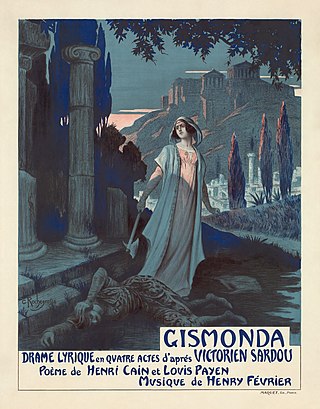
Gismonda is a 1919 French-language grand opera in three acts by Henry Février to a libretto by Henri Caïn and Louis Payen based on the 1894 play Gismonda by Victorien Sardou. The planned premiere in Paris was halted by the outbreak of World War I but the composer was given leave from the French army to premiere the opera with Mary Garden in the title role with the Chicago Opera Association on 14 January 1919. Février was also present when the production was then shown in New York City at Loew's Lexington Theatre on January 27 that year. It premiered in Paris at the Opéra-Comique on 15 October of the same year.
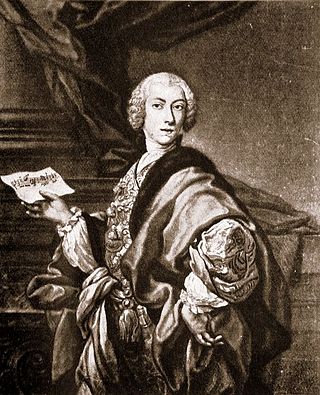
For Giovanni Battista Pergolesi's L'Olimpiade, see L'Olimpiade (Pergolesi)
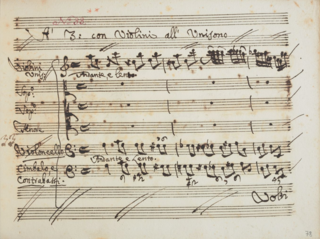
Carlo re d'Allemagna is a three-act dramma per musica by Italian composer Alessandro Scarlatti to a libretto by Giuseppe Papis, after Francesco Silvani, premiered at the Teatro San Bartolomeo of Naples on 26 or 30 January 1716. This is the composer's 79th opera out of 114 composed.
References
- Casaglia, Gherardo (2005). "Pietro Dolfin" . L'Almanacco di Gherardo Casaglia (in Italian).
- Norbert Dubowy. "Adelaide", Grove Music Online , ed. L. Macy (accessed March 22, 2007), grovemusic.com (subscription required) Archived 2008-05-16 at the Wayback Machine